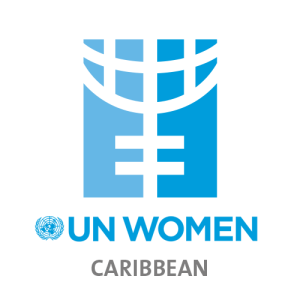From cooking and cleaning, to fetching water and firewood or taking care of children and the elderly, UN Women data shows that globally, women spend 2.8 more hours on unpaid care and domestic work than men. As a result, they have less time to engage in paid labour, or work longer hours, combining paid and unpaid labour.
In the Caribbean, Barbados will collect data for the first time that measures unpaid domestic and care work locally, making it the second country in the sub-region to participate in a regional pilot aimed at determining the contribution of unpaid domestic care work to the economy.
The Barbados Statistical Service (BSS) and UN Women Multi-Country Office (MCO) - Caribbean have partnered to implement this initiative, introducing targeted questions to the Continuous Labour Force Survey. This data will offer insight into the distribution of household responsibilities that women and men share within their home and family networks.
Unpaid care work constitutes almost half of total global work time. It sustains families and communities on a day-to-day basis. Absence of this data means that the work and its contribution to the economy remains unrecognised.
Deputy Representative, UN Women MCO – Caribbean, Isiuwa Iyahen said: "We know the figures globally, but we need to fill this critical data gap in the region. From a socio-economic standpoint, the more women engage in unpaid work, the less time they have to engage in paid employment, pursue entrepreneurship or even have moments of leisure, which is a fundamental right. The first step in closing that gap is first understanding the extent or prevalence.”
Availability of this region-specific data can also inform policies that address access to services that can support gender equitable distribution of unpaid care work within the home and society; such as services for childcare, eldercare and care for persons with disabilities and parental leave for both women and men.
In January, the BSS and UN Women consultants trained enumerators on the objectives of the new questions on unpaid care and domestic work for them to in turn support those who would be participating in the survey. The Barbados unpaid care work data collection is part of the UN Joint Programme “Integrated Population Data and Policy Solutions for SDGs Acceleration in Barbados and Montserrat funded by the UN SDG Fund. UN Women also funded three (3) enumerators who will assist with the collection of this data and provided six (6) android tablets through this programme. The SDG Fund programme is being implemented by UN Women MCO Caribbean and UNFPA.
Labour Force Surveys are one of the primary national household surveys conducted by countries to obtain official national statistics on the labour force, unemployment and employment. Barbados, and other signatories to the 2030 Agenda for Sustainable Development and its SDGs are able to use this information to track progress on SDG 8 (Decent Work and Economic Growth); and SDG 5 (Gender Equality).
....................................................
This story was first published to UN Women Caribbean website.




